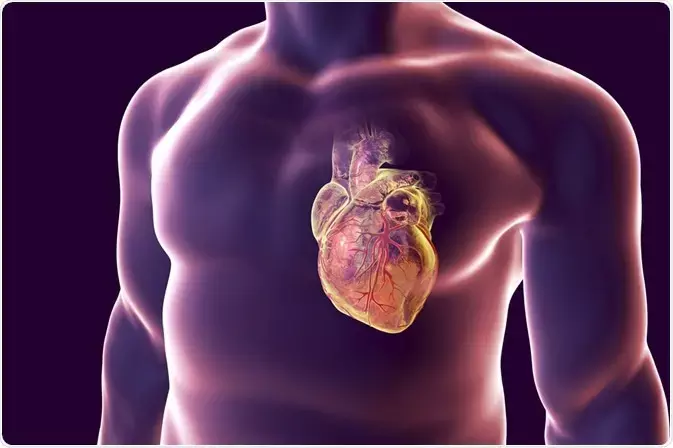- Home
- Medical news & Guidelines
- Anesthesiology
- Cardiology and CTVS
- Critical Care
- Dentistry
- Dermatology
- Diabetes and Endocrinology
- ENT
- Gastroenterology
- Medicine
- Nephrology
- Neurology
- Obstretics-Gynaecology
- Oncology
- Ophthalmology
- Orthopaedics
- Pediatrics-Neonatology
- Psychiatry
- Pulmonology
- Radiology
- Surgery
- Urology
- Laboratory Medicine
- Diet
- Nursing
- Paramedical
- Physiotherapy
- Health news
- Fact Check
- Bone Health Fact Check
- Brain Health Fact Check
- Cancer Related Fact Check
- Child Care Fact Check
- Dental and oral health fact check
- Diabetes and metabolic health fact check
- Diet and Nutrition Fact Check
- Eye and ENT Care Fact Check
- Fitness fact check
- Gut health fact check
- Heart health fact check
- Kidney health fact check
- Medical education fact check
- Men's health fact check
- Respiratory fact check
- Skin and hair care fact check
- Vaccine and Immunization fact check
- Women's health fact check
- AYUSH
- State News
- Andaman and Nicobar Islands
- Andhra Pradesh
- Arunachal Pradesh
- Assam
- Bihar
- Chandigarh
- Chattisgarh
- Dadra and Nagar Haveli
- Daman and Diu
- Delhi
- Goa
- Gujarat
- Haryana
- Himachal Pradesh
- Jammu & Kashmir
- Jharkhand
- Karnataka
- Kerala
- Ladakh
- Lakshadweep
- Madhya Pradesh
- Maharashtra
- Manipur
- Meghalaya
- Mizoram
- Nagaland
- Odisha
- Puducherry
- Punjab
- Rajasthan
- Sikkim
- Tamil Nadu
- Telangana
- Tripura
- Uttar Pradesh
- Uttrakhand
- West Bengal
- Medical Education
- Industry
Management of immune checkpoint inhibitor-associated myocarditis: An overview

Thorough patient history and various diagnostic modalities, like imaging and biopsy, may be useful in diagnosing ICI-associated myocarditis, according to a narrative review published in the JAMA Cardiology.
In the last few years, Immune checkpoint inhibitors (ICIs) are a new class of immunotherapy drugs that are beneficial for treating different types of cancers like metastatic melanoma, non-small lung cancer, or renal cell carcinoma. These drugs work by blocking checkpoint proteins from binding with their partner proteins.
But, the immune checkpoint inhibitor-associated myocarditis has led to a significant and possibly deadly side-effect. Hence, identifying, diagnosing, and managing ICI-associated myocarditis has created new difficulties for the practicing medical professional.
In this study Lehmann L et. al conducted a current literature review on ICI-associated myocarditis with an aim to provide a standardized diagnostic and therapeutic approach for patients with suspected ICI-associated myocarditis.
· The researchers observed that the clinical presentation and cardiac pathological findings are greatly variable in patients with ICI-associated myocarditis.
· And though endomyocardial biopsy is a standard diagnostic test, a combination of clinical suspicion, cardiac biomarkers (specifically troponin), and cardiac imaging, in addition to a biopsy are generally required to support the diagnosis.
· Lastly, the combination of a cytotoxic T-lymphocyte-associated protein 4 inhibitors with a programmed cell death protein 1 or programmed death-ligand 1 inhibitor increases the risk of developing ICI-associated myocarditis.
The researchers concluded that a complete history of recent cancer treatments and physical examination in combination with cardiac biomarkers, cardiac imaging, and endomyocardial biopsy represent a pragmatic diagnostic approach for most cases of ICI-associated myocarditis. Also, the addition of novel biomarkers or imaging modalities is an area of active research and should be evaluated within the larger cohorts.
Reference:
A study titled, "Clinical Strategy for the Diagnosis and Treatment of Immune Checkpoint Inhibitor–Associated Myocarditis: A Narrative Review" by Lehmann L et. al published in the JAMA Cardiol.
DOI:10.1001/jamacardio.2021.2241
Dr. Shravani Dali has completed her BDS from Pravara institute of medical sciences, loni. Following which she extensively worked in the healthcare sector for 2+ years. She has been actively involved in writing blogs in field of health and wellness. Currently she is pursuing her Masters of public health-health administration from Tata institute of social sciences. She can be contacted at editorial@medicaldialogues.in.
Dr Kamal Kant Kohli-MBBS, DTCD- a chest specialist with more than 30 years of practice and a flair for writing clinical articles, Dr Kamal Kant Kohli joined Medical Dialogues as a Chief Editor of Medical News. Besides writing articles, as an editor, he proofreads and verifies all the medical content published on Medical Dialogues including those coming from journals, studies,medical conferences,guidelines etc. Email: drkohli@medicaldialogues.in. Contact no. 011-43720751


